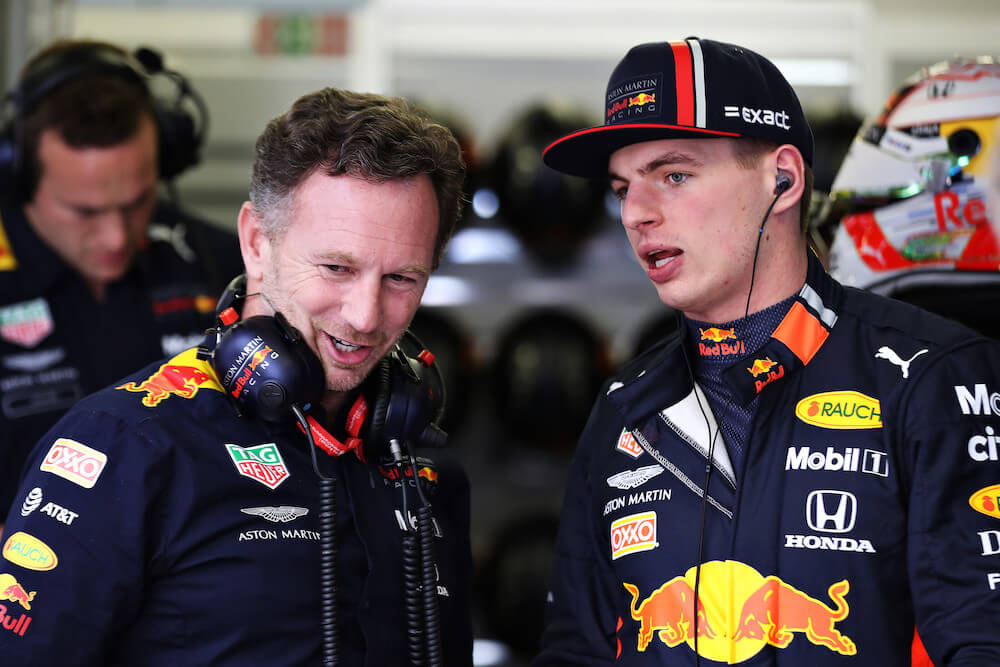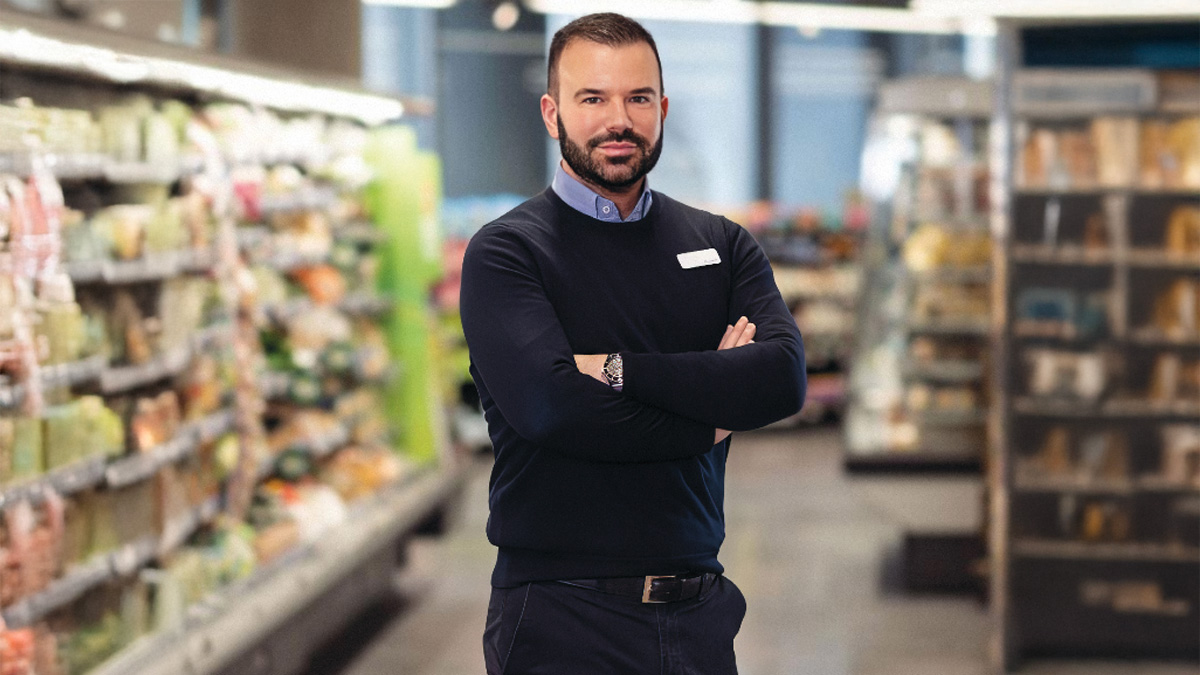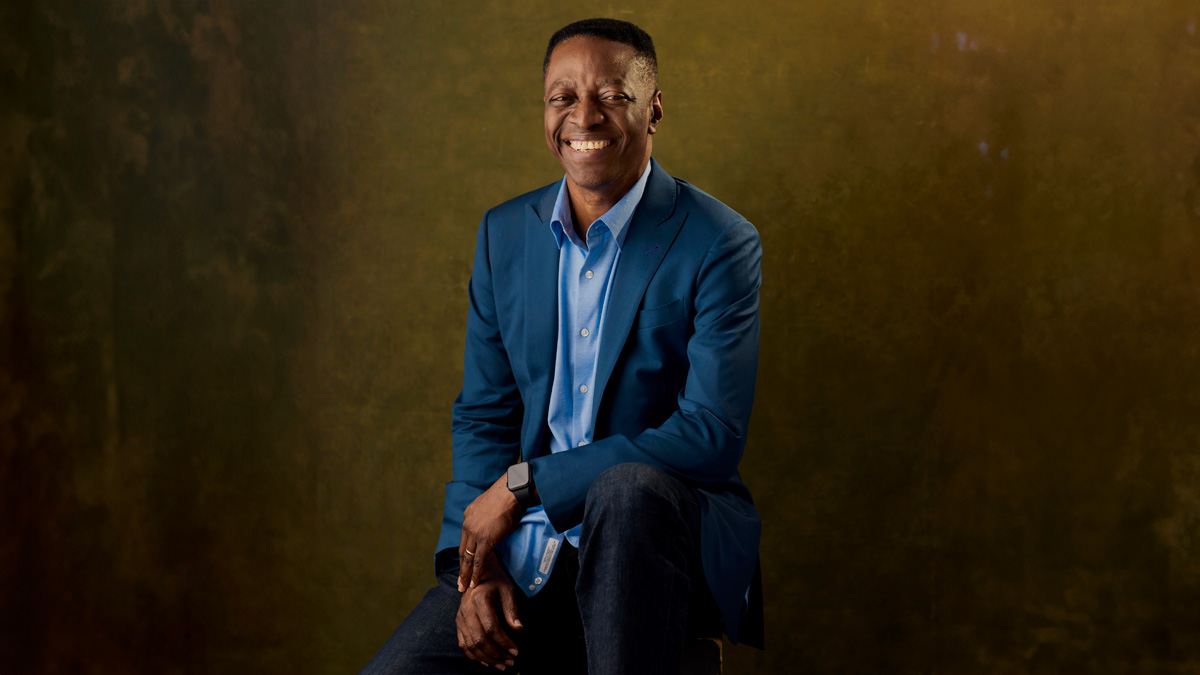Driven to success: In conversation with Red Bull Racing Principal Christian Horner

We visited Red Bull Racing HQ in Milton Keynes, to talk with Team Principal Christian Horner OBE. He opened up about his ‘non-confirmist’ team culture, managing ‘pop star’ drivers, and the highs of winning four Constructors’ World Championships.
Can you give us an overview of your career?
I started racing go-karts at the age of 12, went through various categories, and won a scholarship from Renault in 1991 to move from karts into car racing.
I was relatively successful in the junior formula, but the higher you went the harder it got.
Of course, motor racing is an expensive business, and unlike other sports, drivers are expected to bring funding with them in the lower categories. Part of the challenge was raising sponsorship. By the time I reached Formula 2, I didn’t have a budget to go to a good team, so I decided to buy a single car and become an entrant.
I created the Arden team in 1997. I raced on my own that year and brought in a teammate in 1998, and then decided I had gone as far as my talent and funding was going to take me, so decided to step out of the cockpit and focus on building the team.
We went on to win three consecutive championships in that category. One of our drivers was also a young Red Bull driver, and I guess that put me on the radar of Red Bull, so when they acquired what was then the Jaguar team at the end of 2004, they approached me to run the team.
Was it always your ambition to move into team management?
I never envisaged a career in management, my focus was on driving. I left school at 18, I didn’t go to university, and my focus was very much on racing and forging a career as a driver.
When did you first consider that team management might be a career for you?
At the beginning of the 1998 season, we were testing at Estoril. There was a very fast right-hander, and a driver called Juan Pablo Montoya came past me into the turn. It was a sixth-gear corner, and the angle his car was at, the commitment he had, was one I knew my brain and foot just wouldn’t be able to do. I recognised that I wasn’t prepared to take that risk. Once you start thinking like that… it was pretty early on in that season that I knew.
It was then about establishing the team, getting the right engineers and mechanics in place, and then I could focus on running the team. I had to hustle and go and find commercial sponsorship, I was booking hotels, I was doing the VAT returns, and even cleaning the truck on some occasions; it was a tremendous education from a grassroots level, getting into the nuts and bolts of how a race team operates.
Have your counterparts in other Formula 1 teams progressed in that same way?
No, I think others are from far more managerial or corporate backgrounds. When I look around there are not many what I would call old-school racers.
When did your ambitions begin to crystalise around Formula 1?
Formula 1 was always the pinnacle, always the goal, to get there as a driver or to get there as a team. It was always something I wanted to be involved in.
When you joined Red Bull, was it the ambition from day one to be champions?
It was a very young team. I was 31. Red Bull had ambitious aspirations, they did not just want to be a mid-field runner, and (Red Bull Co-Founder) Dietrich Mateschitz wanted to have a competitive team to promote his brand on a global platform. That meant winning. He’s a competitive guy.
Of course, there were so many manufacturers out there when we came into the sport, huge teams. Ferrari, Williams, McLaren, Toyota, Honda, and Renault; and we were a minnow in comparison in those early days.
Because it was such a young team, did that give you a greater opportunity to shape it how you wanted?
It was a question of looking at where the strengths and the weaknesses were. There were real pockets of talent within the team. What it needed was clear direction – we had lots of subsets of departments that weren’t working in unity – and getting the right people established in the right places.
What was your biggest challenge in those early days?
Establishing credibility. I’d come into the sport very young and nobody really knew who I was, and this is a team that wants to achieve, it wants to win. My peers were the likes of Ron Dennis, Jean Todt, Flavio Briatore, Frank Williams, and Eddie Jordan, big names and entrepreneurs in many respects.
Did you have a timeframe for how long you felt it might take to get to where you wanted to be?
You can come in with a five-year plan, and all that jazz, but everybody in this sport is impatient, so there was no definitive time scale. We wanted to get there, and we wanted to get there as quickly as we could.
Can you pinpoint a moment when you first realised the championship was genuinely within reach?
I think there were a few factors, but the first and most significant was the recruitment of Adrian Newey at the end of the first year. He was the world’s best Formula 1 designer, so attracting him and getting him to join the team, that signified serious intent because people thought ‘Wow, if Adrian Newey’s going there, these guys are serious’. Then it was a matter of building a team around him.
Was it down to you to sell your vision to Adrian?
I could see Adrian was restless where he was at McLaren, and I’d always been a fan of his and his cars from before I’d arrived in Formula 1. I got to know him, we became friends, and then I introduced him to the Red Bull world. I think the less corporate structure of Red Bull appealed to his creativity and freedom. What you don’t do with Adrian Newey is tell him how to do his job, and I think we have provided an environment for him which has fed that creativity.
You won the title four years in a row. How do you keep yourself motivated during sustained success?
When you’re on top, if you win a race, you enjoy it for the evening, but by the time you’re back in the office on Monday morning, it’s about the next event and wanting to build on that performance. It’s so fast-moving, this sport, that you’re always focused on the next target, you never get the chance to look backwards. There almost becomes a fear of losing, and there becomes an atmosphere of expectancy going into a race.
Yours is a high-pressure role, with huge expectations on your shoulders. How do you cope with that?
What experience has taught me is to focus on the things you can control, rather than worrying about the things you can’t. It’s prioritising, it’s about keeping the group focused on their objectives, and just taking things one at a time, day by day, because I think if you project too far forward, you lose sight of what’s going on today. For me, that’s incredibly important.
What sort of traits do you look for to build your leadership team?
Very much team players, not individuals. Adrian Newey is quite unique because he has a unique skill set, but when you look at the management team, it’s very much people with a can-do attitude and a glass-half-full mindset. It’s about working with people, this business, so they have got to have the skills of interaction and communication. It’s not just an email culture; if there is an issue, it’s a case of sitting in a room, discussing it, and coming up with solutions.
Do you set yourself targets?
Of course, you set yourself targets, but you’ve got to be prepared to move them as well. Our target certainly for next year is to be the challenger team to Mercedes. We don’t know what the opposition will do, we can only focus on ourselves, so it’s head down and do the best job you can to come out in February with your new car in the best shape you can be.
You sound optimistic for 2020 – do you think a breakthrough year could be on the cards?
In the past 10 years, there have only been two constructors who have won the championship, which is Mercedes and ourselves, but sport is always cyclical, and at some point, Mercedes will stop winning. We have to make sure we’re the team there ready to pick up the baton again.
And you’re confident you will be?
I think we have the right people, the right team, the right structure, the right tools and facilities, the right drivers, to do that.
How much can you personally influence? Is it about building a culture, or exerting a direct influence?
It’s many, many things. It’s setting a tempo, common goals and objectives, and having the right team around you. I am fortunate to have a very good team of men and women around me. Formula 1 is the biggest team sport in the world; there are over 800 people in this business to produce two Grand Prix cars. The technology involved in these cars is so advanced, and the pace of development is so intense, that those are the sort of numbers of personnel required to feed the machine.
With 800 people in the team, including world-leading experts and big personalities, how do you bind the team together?
Communication is vitally important. After every Grand Prix we get the entire business together to talk about what went well, and what our immediate targets are, and having the right communication channels to my direct reports, and being accessible, is the most important thing.
We have a team culture where there is no room for individuals’ egos. There is no vanity; it is very much the team that wins here. We have a culture of each department supporting each other because when we do win a Grand Prix it’s a realisation of all those 22 departments coming together and having delivered.
Is that culture set by you?
Ultimately yes. There’s obviously Red Bull DNA in there as well, the style that we are, the slightly non-conformist values of Red Bull. You’ll see more people here in jeans and T-shirts than you would at McLaren or Mercedes for example, so it’s creating that culture, that ethos. We invest in our employees and we look after them, and they respond to that. There’s nobody watching the clock here because we’re not making standard components, it’s a competition.
Do you celebrate together when things go well?
Absolutely. It’s important to enjoy and embrace success, and to celebrate success.
How is team morale right now?
It’s very good. Everybody is going into this winter with their tail up because we’ve had a great first year with Honda, it’s been a transitionary year for the team, and we’ve learned an awful lot of lessons. I think you sense within the business a sense of confidence and ambition. We’ve made great progress, and it just feels that we’re on the cusp of being a real challenger to Mercedes in 2020.
How will the budget cap, set to be introduced in 2021, impact Red Bull racing?
It’ll force efficiencies within the business. It will encourage us to look at cost-effective design. We will bring more production in-house. We’re still evaluating, but we feel we can cope with the cap responsibly by making ourselves more efficient. It’ll be a mindset change, but we believe we can take that on.
How does a change of driver influence the team culture?
The drivers are the pop stars, but they are one element of the team. They have the privilege of driving the cars people here produce, so of course the driver is the most visual element, but they also have a huge responsibility as they are carrying the hopes and dreams of those 800 people.
Drivers can, in the heat of the moment, be outspoken. How do you prepare for that?
That again is part of the Red Bull ethos; we want the drivers’ personalities to shine through, and we don’t want to constrain them, so as long as they are not being offensive in any way, we want people to see their character. You see with Max Verstappen that he’s very much a free spirit, and that enables us to get the best out of him.
How big has the Red Bull influence been on the brand?
From a marketing perspective, it’s been pretty strong, but Dietrich has been very good in just saying ‘Build the best team that you can’ so there’s no insistence things have to be done in a certain way.
You’ve enjoyed much success – but do you still have unfulfilled ambitions?
Yeah, absolutely. We want to make sure we are challenging and beating Mercedes in the years ahead. We would like to have the youngest world champion, and we have that opportunity with Max next year. Red Bull is still a young team. We have a cabinet full of trophies, but we’d like to make some more cabinets




